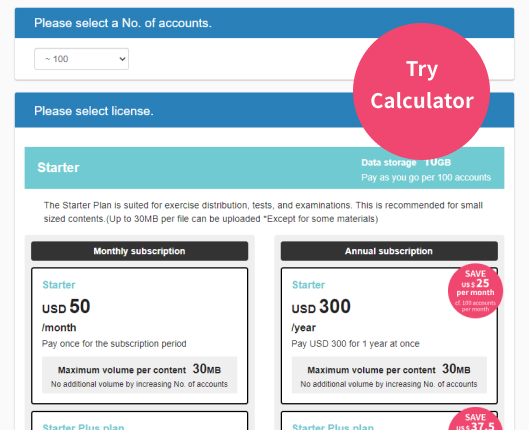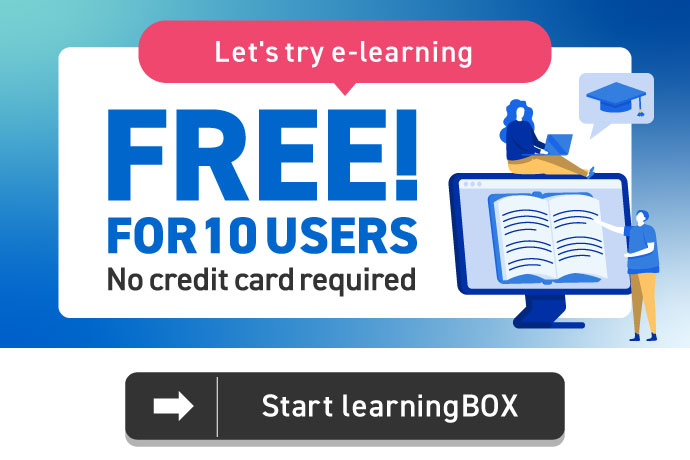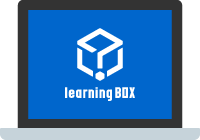Four types of e-Learning for companies│Tips for choosing the right one and effective operation
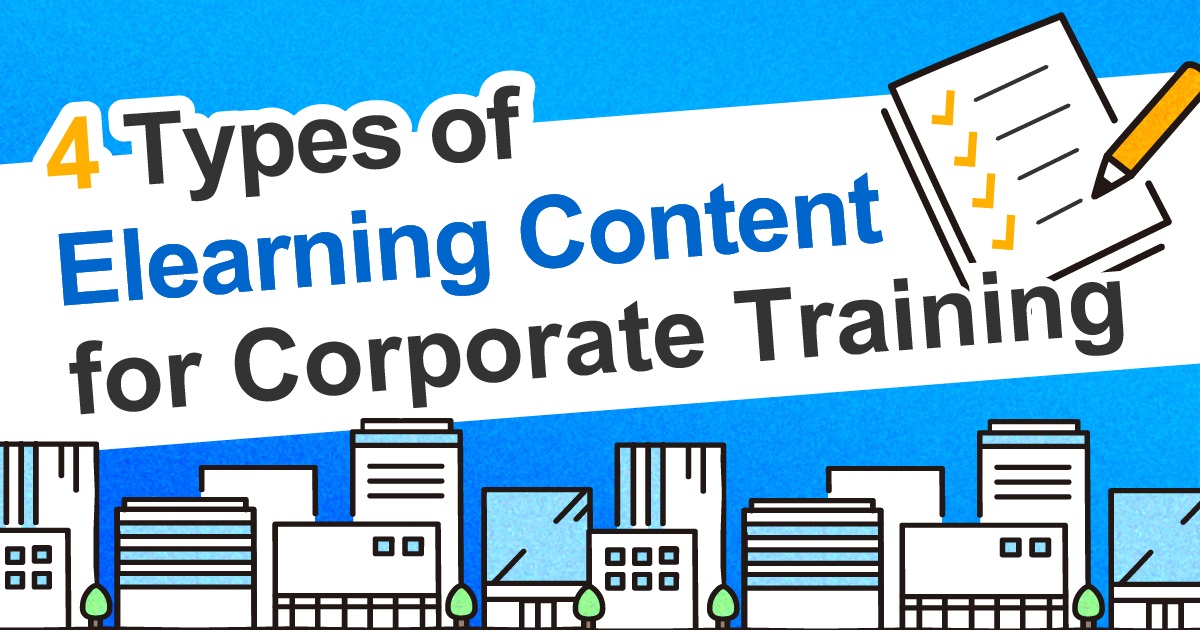
In response to the impact of the spread of the new coronavirus and changes in work styles, many companies are considering switching from group training, which requires face-to-face interaction, to e-learning. There are many different types of e-Learning for companies, depending on how the content is delivered and the area of training.
In this issue, we will provide an overview of e-Learning for companies, types, key points for selection, and tips for operation. If you are considering ways to improve the efficiency of in-house training and the effectiveness of training, please refer to this article.
Types of e-learning for companies

When training human resources, we recommend the use of corporate e-learning. Here is an overview of corporate e-Learning and the types of e-Learning available.
What is eLearning for companies?
E-learning for companies refers to a service that can efficiently provide and manage in-house training online. Generally, a learning management system (LMS) is installed that enables the creation and distribution of teaching materials and visualization of learning progress, and learners access a server to receive lectures.
It is used for many in-house training programs, including new employee training, compliance training, and harassment training.
E-learning is in increasing demand as an alternative to group training because it is easy to reduce the cost and time required to prepare for training and can be taken at the pace of the individual, regardless of time or location. Companies that have increased the size of their internal training programs, increasing the burden on training staff, travel expenses, and the cost of creating learning materials, are likely to experience the benefits of e-learning.
Four Categories of Corporate E-Learning
E-learning for companies can be broadly classified into four categories based on the content and functions they possess. Specifically, there are four types: general-purpose content provision type, specialized content provision type, content utilization support type, and content creation support type. It is necessary to select the appropriate service according to the issues your company faces and your budget.
<Four categories of corporate e-learning
| Classification. | Key Feature |
|---|---|
| General-purpose content-providing type | -Many contents suitable for new employee training and training by job level and occupation -Areas include business etiquette and compliance. -Suitable when there are no training materials or resources to implement |
| Specialized content-providing type | -Specialized content is available for specialized fields. -Mainly in areas such as information security and IT skills -Suitable for cases where there are no training materials or know-how in the area of expertise |
| Content Utilization Support Type | -Suitable for companies that have their own content but are struggling operationally. -Strengths of the course management functions, such as tests and quizzes to measure comprehension |
| Content creation support type | -Suitable if you want to add new content on a daily basis -Features include the ability to capture and share images and videos |
What to look for when choosing eLearning for your company

Corporate eLearning is differentiated in various aspects, including cost and functionality. We will therefore explain how to choose an eLearning program for your company and what you should focus on.
Is the content appropriate for the purpose of the training?
When implementing e-learning for companies, it is necessary to clarify the knowledge and skills to be acquired by the learners through training. Without a clear objective, it is difficult to determine what type of learning format or plan is appropriate.
However, we do not recommend that you make a decision to introduce a theme solely on the basis of whether or not it provides a suitable theme for your purposes. It is also important to determine the quality of the content and whether it is expected to have a learning effect.
Specifically, check the quality of instructors, the number of specific examples, whether video materials are supported, and the richness of videos and images. We recommend a service that allows you to check actual training content with a free trial.
Can you create your own original content?
The knowledge and skills required of a company's human resources differ from industry to industry. Therefore, when using e-learning for in-house training, it is important to choose a platform that allows you to create not only existing content but also your own original content. By introducing a service that is intuitive and allows users to create educational materials in a few simple steps, you can reduce the man-hours required to prepare content.
In addition, if you have video materials or materials used in previous trainings, you may want to select those that can be customized and diverted.
Is it easy to manage learning progress?
With e-learning, the timing and frequency of course attendance is left up to the learner. To reduce individual differences in understanding of training content, it is recommended to introduce a service that enables centralized management of course attendance. Efficient support can be provided by displaying alerts to learners who are behind in their progress and providing feedback to employees whose test results are not satisfactory.
<Tips for choosing eLearning for your company
| Points for consideration and comparison |
|---|
| -Is the content appropriate for the purpose of the training? -Does it have features that facilitate the use of the company's own content? -Is there a fee structure in place that is appropriate for the number of learners and frequency of use? -Is there a system in place to help keep learners motivated? -Are the controls and design user-friendly for learners and administrators? -Can I stream live or video? -Can it be used on multiple devices such as smartphones and tablets? -Can you create and distribute your own original content? -Can it cover the expected number of users and concurrent usage? -Can it be used at a cost that fits into the budget plan? -Are users reputable and do they point out any problems? |
Key to effective operation of e-learning for companies

What points should be considered when using e-Learning to improve training effectiveness? Here we will explain the key points for effective operation of e-Learning for companies.
Combined with practical training
Since e-learning mainly consists of watching videos, it is difficult for trainees to think and act independently during the training, so it is effective to provide opportunities to practice the input content. For example, in the case of business manner training, role-playing with peers or superiors is a possible solution.
Keep content updated with the latest information
To optimize training content, it is also important to regularly update content in light of legal revisions and market changes. While paper-based training materials need to be revised and printed out again, e-learning allows the entire process from revision to replacement to be completed online.
Follow-up is essential according to the learner's level of proficiency.
Many learning management systems provide testing and survey functions related to course content. These functions can be used to assess learners' level of proficiency and follow up with them as necessary. By proactively encouraging employees to take the initiative, the company can expect to see an increase in employee motivation and willingness to learn.
Back to ContentsIntroduce e-learning for your company and use it for employee training.
In this issue, we reported on the types of e-learning for companies, how to choose the right one, and key points for its operation. e-learning is becoming a standard for in-house training as a tool that can improve learning effectiveness while reducing training costs.
Why not introduce an e-learning program suited to your company based on an understanding of the key points of operation, and use it for employee training?
If you want to incorporate e-learning into your in-house training, you can use the e-learning system's "learningBOX LearningBOX is a learning management system that provides all the functions necessary to conduct training via e-learning, including the creation and delivery of teaching materials, grading, and management of learning histories.
We also offer a free plan that allows you to use each function for 10 accounts for free and indefinitely. Free Plan.
learningBOX ONWith the "Training Content" feature, you can also add company-required training content to the learningBOX. By combining harassment training, information security training, compliance training, etc., you can easily design your own original training program.
▼You may also like:
Back to Contents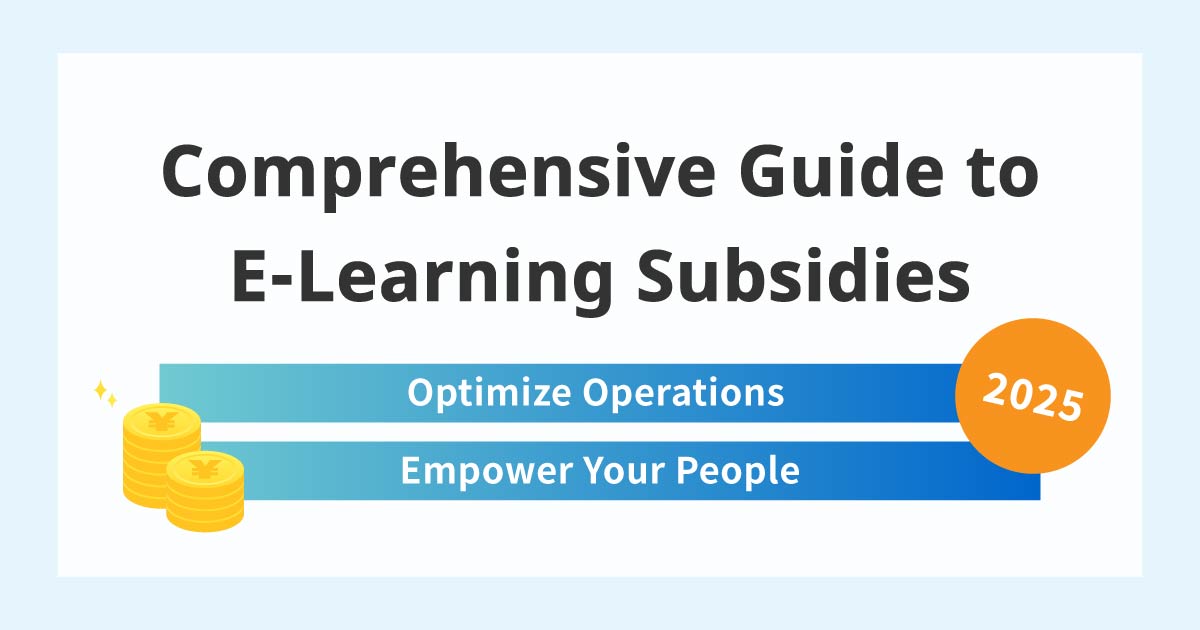

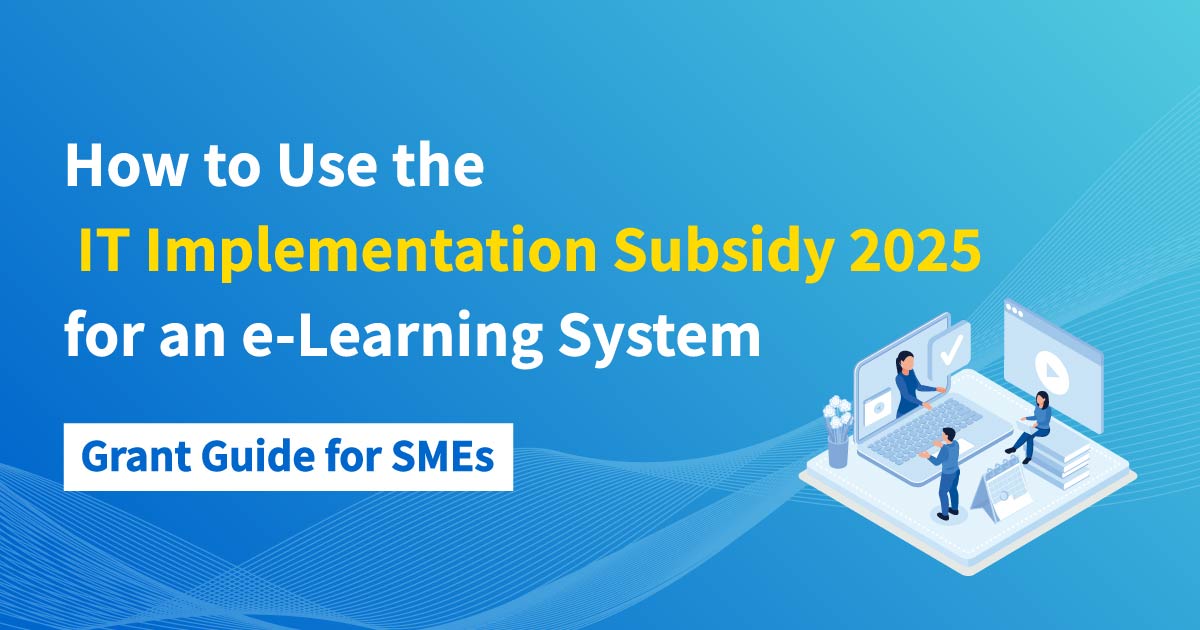
-
Discover rich featuresService Guide
-
Feel free to contact usGet in Touch
-
Try our Free PlanTry Free Plan
